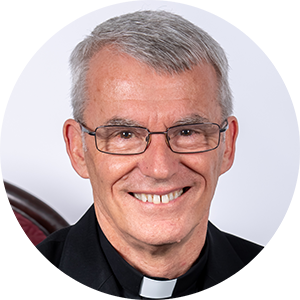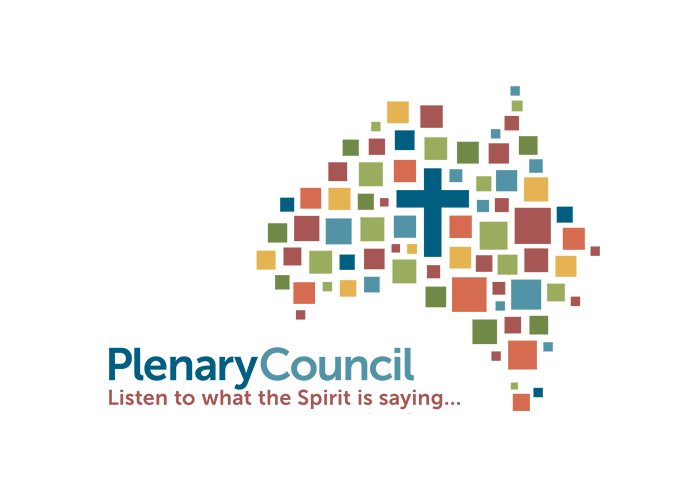
Mr Daniel Ang
Mr Ang has been part of the Plenary Council journey since its inception, serving on the Council’s executive committee, an advisory body to the Bishops Commission for the Plenary Council. He is a member of the Australian Catholic Council for Pastoral Research and former chair of the National Pastoral Planners Network. His qualifications include a Master of Divinity from the Sydney College of Divinity. He is currently director of the Sydney Centre for Evangelisation.
How have the voices of the People of God laid the foundations for the Plenary Council journey?
I’m honoured to have been invited by the bishops to contribute to the preparations for the Plenary Council in this way. I’ve been very grateful to be a part of conversations over the past years and to listen to the experiences and questions posed in a number of parishes and communities, in schools, by individuals, at gatherings of clergy and diocesan assemblies. There’s a strong desire for renewal in the voices I have heard and in the working papers now received. I see the Council as a call to focus on the ways in which we are summoned by God through the action of the Holy Spirit to proclaim and live out the mission of Christ faithfully in Australian society. The views and experiences shared underscore how different our situation is today and will be in the future to previous generations and yet also express an enduring passion for the Gospel of Jesus Christ and a desire to be attentive to what the Spirit of God, the Spirit of Christ, is “saying to the churches”.
What do you see as the task of the Instrumentum Laboris team in the current stage of preparation?
I anticipate the Instrumentum Laboris will bring the fruit of the listening and dialogue that has taken place over these years, and also as reflected upon and wrestled with by the Discerning and Writing Groups, into a new stage of synthesis and into conversation with developments that have emerged even since the Plenary Journey began. I think particularly of the recent report on governance, the ongoing implications connected to the Royal Commission, and just in this past fortnight the Instruction from Pope Francis on the renewal of parish life. These bring further light to the voices already shared as we seek to chart a course of faith-filled and missionary renewal here in Australia. Of course I’m conscious that our role will be one part of a Plenary journey that will stretch well beyond our group’s work together, to engage other voices. Above all it will be the delegates of the Council itself who will convene, pray, discuss and invoke and involve the Spirit’s gift of faith and understanding for the renewed evangelisation that is invited by our times.
How will the Instrumentum Laboris invite the Church in Australia to continue to listen to the Spirit?
I hope that our work will provide a faith-filled platform from which conversation among the delegates at the Council can spring. By attending to the experience and hopes that have been shared to date and engaging the themes and questions that have been raised from within the living tradition of our Church I trust that the Spirit will move us forward. I see this entire pilgrimage of faith as none other than the reception of Jesus through time under the guidance of this Holy Spirit, and so I hope our work will ultimately nourish that encounter with Christ which is the very foundation and mission of the Church’s future in faith.

Archbishop Timothy Costelloe SDB
Archbishop Costelloe, the Archbishop of Perth since 2012, was elected president of the Plenary Council in November 2017. In addition to pastoral ministry, Archbishop Costelloe has taught in secondary schools and at the Catholic Theological College in Melbourne and the University of Notre Dame Australia, and assisted in the formation of members of his religious congregation: the Salesians of Don Bosco. He has held several leadership roles within the Salesians and within the Australian Catholic Bishops Conference.
How have the voices of the People of God laid the foundations for the Plenary Council journey?
At the heart of our Plenary Council journey has been the idea that, guided by the teachings and inspiration of Pope Francis on synodality, we have all been trying to “listen to God by listening to each other”. The Holy Spirit “breathes where he wills” (see John 3:8) and anoints the whole People of God with an “instinct for the faith” (see Lumen Gentium 35). “Listening to God” is the only way of answering the question of the Plenary Council: “What do you think God is asking of us in Australia at this time?” Through private and communal prayer, and through sincere, open and respectful dialogue, many members of our Catholic community have shared their own understanding of what God might be asking of us. Our challenge now is to discern, in the multiplicity of voices we have heard, the voice of the Spirit who leads us forward.
What do you see as the task of the Instrumentum Laboris team in the current stage of preparation?
The writing of the Instrumentum Laboris is a further important step in the journey of discernment in which we are all engaged. As well as the voices of the people of God which have been so powerfully expressed in the Listening and Dialogue and Listening and Discernment phases of our journey, we also have been listening to other voices: the voice of the Royal Commission, the voice of the Governance Review, the voice of Pope Francis and the bishops, the voice of our responses to the COVID-19 pandemic and to other events in our local, national and international contexts. It is the task of the Instrumentum Laboris to give voice to all these elements of our individual and communal experience, and deepen the process of bringing them into dialogue with the Gospel and the Church’s living Tradition (see Novo Millennio Ineunte 29).
How will the Instrumentum Laboris invite the Church in Australia to continue to listen to the Spirit?
The Instrumentum Laboris is not in any sense the final word on any issue. The “final word” will be spoken in the months and years which follow the Plenary Council, as each diocese and local Church community begins to discern how best to incorporate the insights and practical proposals which emerge from the Plenary Council into its own local context. Rather, as a major impetus for deeper reflection and prayer leading up to and during the Plenary Council Assemblies in 2021 and 2022, the Instrumentum Laboris will hopefully be a constant reminder of the need for an ongoing and deepening discernment of God’s will for the Church in a rapidly changing and ever more challenging world.

Dr. Trudy Dantis
Dr Dantis is director of the National Centre for Pastoral Research (NCPR), an agency of the Australian Catholic Bishops Conference, which was responsible for the collation and summary of submissions in the Plenary Council’s Listening and Dialogue phase. Her doctoral thesis was titled “Tracing the pulse: An investigation into the vitality of Australian Catholic parishes”. She is the author of A Handbook for Building Stronger Parishes and has authored and co-authored several research reports. Dr Dantis is deputy chair of the board of the Christian Research Association.
How have the voices of the People of God laid the foundations for the Plenary Council journey?
During the Listening and Dialogue Phase, I was privileged to be able to read and gather together the submissions made by individuals and groups in families, parishes, schools and organisations. These experiences and stories of faith and Church bear testimony to the concrete realities of how faith is lived out today in Australia. The joys and hopes, questions and challenges that have been shared during this phase and through the writings of thematic papers form the basis for the continued process of reflection and discernment. They continue to be a crucial element of the path of synodality as we work towards the ongoing mission of the Church in Australia and for the proclamation of Christ to the world.
What do you see as the task of the Instrumentum Laboris team in the current stage of preparation?
As we journey towards the Plenary Council, the Instrumentum Laboris can be best described as “a step along the way”. It discusses the pastoral realities and issues essential to the faith and life of the Church in Australia and synthesises them with inspirations from the Gospels and the teachings of the Church. An important aspect in this task is being ever mindful of the promptings of the Holy Spirit as we discern possible avenues for the way forward. This working document will be used as a springboard for the discussions of the Plenary Council Assemblies to assist them in their task of making decisions for the future of the Church in Australia.
How will the Instrumentum Laboris invite the Church in Australia to continue to listen to the Spirit?
Pope Francis reminds us that processes of renewal and transformation cannot come only in reaction to data or external needs but that the journey necessitates “pastoral conversion” — a process that calls for attentiveness to the Word of God and to our mission to proclaim the Gospel. The Instrumentum Laboris is an invitation to the Church in Australia to continue and deepen the processes of listening, reflection and discernment, as each of us seeks to respond to the call to be a Christ-centred Church in this land.

Fr. Kevin Lenehan
Fr Lenehan was last year appointed master of the Catholic Theological College in Melbourne. A priest of the Diocese of Ballarat, Fr Lenehan has qualifications from Monash University, the University of Divinity and Australian Catholic University, and gained a Doctorate in Sacred Theology from the Catholic University of Leuven in Belgium. He works in the areas of fundamental theology, theological anthropology and religious education. He is active in liturgical ministry in parishes and contributes to faith formation and professional development in parishes, schools and dioceses.
How have the voices of the People of God laid the foundations for the Plenary Council journey?
The journey of discernment is about learning to see with the eyes of faith. The contribution of over 200,000 Catholics in the preparatory stages of the Plenary Council has highlighted the things that matter to people of faith as they try to live out their call to follow Jesus in their families, their parishes, in Australian society, and in care for life and for the earth.
What do you see as the task of the Instrumentum Laboris team in the current stage of preparation?
The Instrumentum Laboris team, like all those ‘walking together’ (synodus) on the Plenary Council journey, works by listening, gathering information, praying, and proposing some next steps in the mission of the Church in Australia. It aims to offer a useful instrument or resource to the Council Assemblies that synthesises the priorities from the Gospel, from the Church’s dynamic tradition, and from the lived faith expressions of today’s Catholics.
How will the Instrumentum Laboris invite the Church in Australia to continue to listen to the Spirit?
The Instrumentum Laboris aims to be a stimulus and guide to the communal discernment event of the Plenary Council Assemblies in 2021 and 2022. It will assist the Plenary Council delegates to remain open to the working of the Holy Spirit by shining a light on the urgent questions of Catholics in Australia today, and by challenging the delegates to reflect carefully on the Scriptures and Tradition in order to propose realistic and authentically Catholic ways for the church at all levels to respond to those urgent questions.
